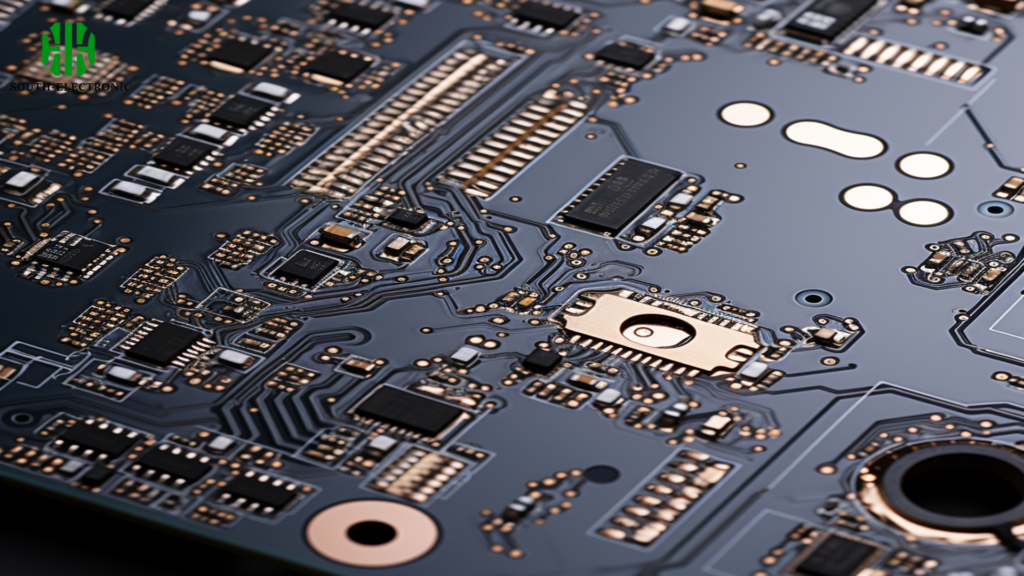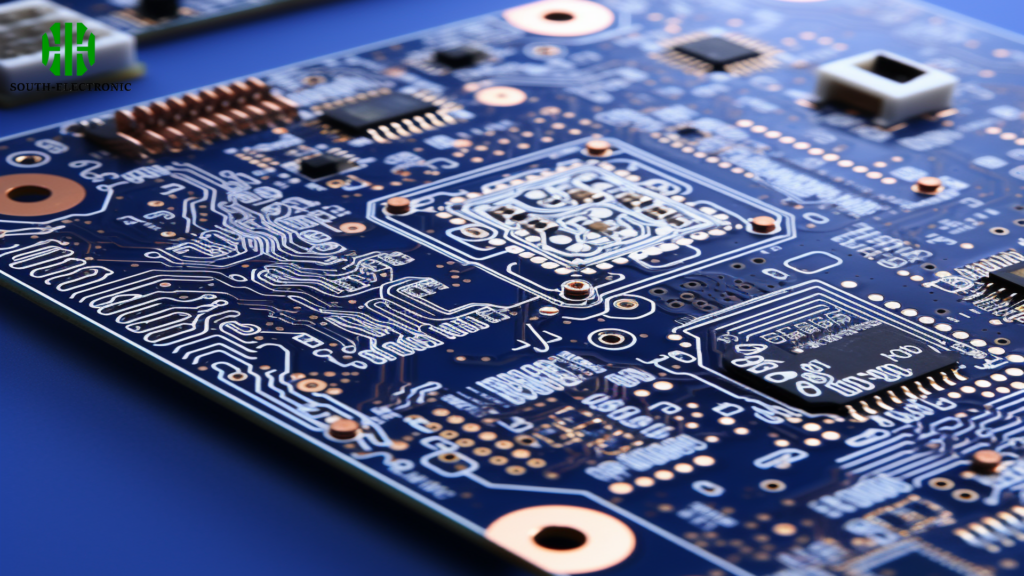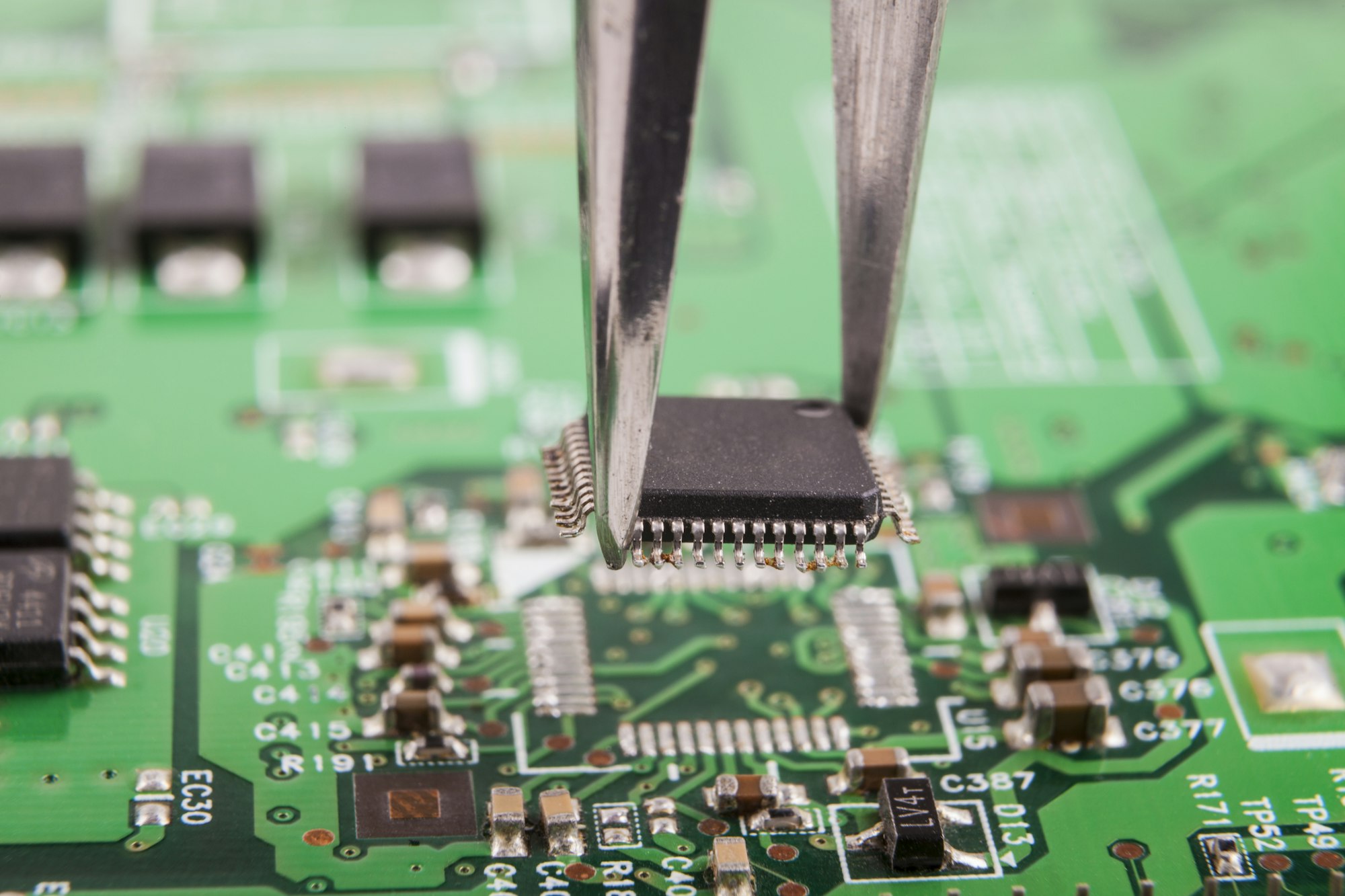Introduce
In the complex world of electronics, aluminum PCBs are known for their superior structural stability. Aluminum’s thermal conductivity and durability set these PCBs apart, ensuring that the heat generated by electronic components is dissipated quickly and efficiently. They find applications in numerous areas, from the luminous aspects of LED lighting to the stringent requirements of the automotive and aerospace industries.
Benefits of Using Aluminum PCBs
Heat Dissipation: For electronic components that generate large amounts of heat, aluminum PCBs effectively remove unwanted heat, ensuring components stay cool and perform optimally. This is especially important in high-power applications—think of it as the difference between a gentle breeze and powerful air conditioning on a hot day.
Durability: Aluminum PCBs resist thermal and physical stress well. This means your electronics are less prone to issues like warping, which can be a real headache for less sturdy circuit boards.
Environmentally Friendly: Aluminum PCBs are mostly recyclable and more environmentally friendly than some of their counterparts. By choosing them, you are actually paying homage to nature and walking towards a harmonious society between man and nature.

Aluminum PCBs vs. Traditional PCBs
In terms of performance, aluminum PCBs are excellent at dissipating heat, which is important in the electronics world, where staying cool under pressure is everything. This makes them ideal for high power applications.
Fiberglass PCBs aren’t as flashy in the thermal management department, but they can get the job done for most standard applications. They are a reliable type, ideal for general-purpose electronics that are not affected by extreme conditions.
In terms of cost, aluminum PCBs may initially appear to be the higher-end, more expensive option. It’s a bit like investing in a high-end brand – you pay more upfront, but the quality and longevity are worth it, especially for high-performance needs. Fiberglass PCBs are your more economical choice, offering a balance of performance and cost-effectiveness for a variety of standard applications.
From an application perspective, aluminum PCBs really perform well in high-heat environments. They are the first choice for LED lighting, automotive applications and power electronics where thermal management is critical for performance and longevity. Fiberglass PCBs are all-rounders – versatile and suitable for a wide range of everyday electronic applications.
Between aluminum PCBs and fiberglass PCBs, it really depends on your specific needs. Do you need the high-temperature performance of aluminum or the dependable versatility of fiberglass.

Common Issues with Aluminum PCBs
These aluminum PCB motherboards are generally sturdy, but like anything in the tech world, they are not immune to the occasional glitch. When your aluminum PCB has a small impact, it may be caused by the following reasons:
A common problem is thermal stress. Due to its excellent heat dissipation properties, aluminum PCBs are often used in high temperature applications. But sometimes, even the best people get stressed. The trick is to make sure your design accounts for thermal expansion. Think of it like dressing for the weather – you want the PCB to have enough “breathing room” to handle temperature changes.
Then there is the issue of mechanical bending. Although aluminum PCBs are stiffer than fiberglass PCBs, they can still bend if not handled properly. It’s like handling a rare book – you need to be careful not to let it warp. Always support the circuit board adequately during assembly and avoid placing undue stress on it.
Welding problems will also gradually appear. Welding on aluminum requires more skill than welding on traditional boards. Aluminum surfaces need to be properly prepared and cleaned before welding to ensure a strong bond. This is similar to preparing your canvas before painting—the groundwork is crucial.
Finally there is the electrical issue. Poor electrical connections can occur, usually due to insufficient etching or improper cleaning. It’s like making sure all the wires in a complex circuit are connected correctly – a loose wire can bring down the entire system.
Conclusion
Aluminum PCBs are pioneers in innovation and efficiency. Their ability to efficiently dissipate heat, withstand physical and thermal stresses and contribute positively to environmental sustainability makes them an excellent choice in many demanding applications. Proper handling and careful design of aluminum PCBs are becoming increasingly important. They’re not just circuit boards, they’re circuit boards. They represent a commitment to advancing technology with high performance and in harmony with the environment. Embracing aluminum PCBs is embracing a future where technology and sustainability go hand in hand.



